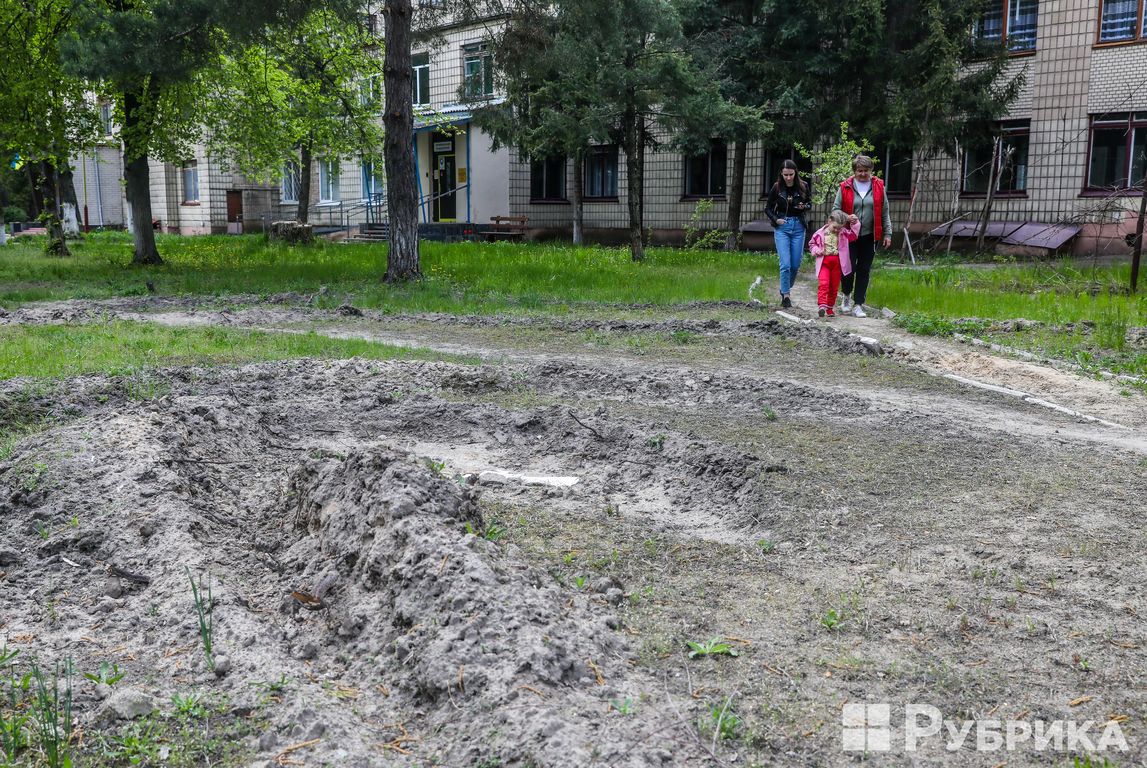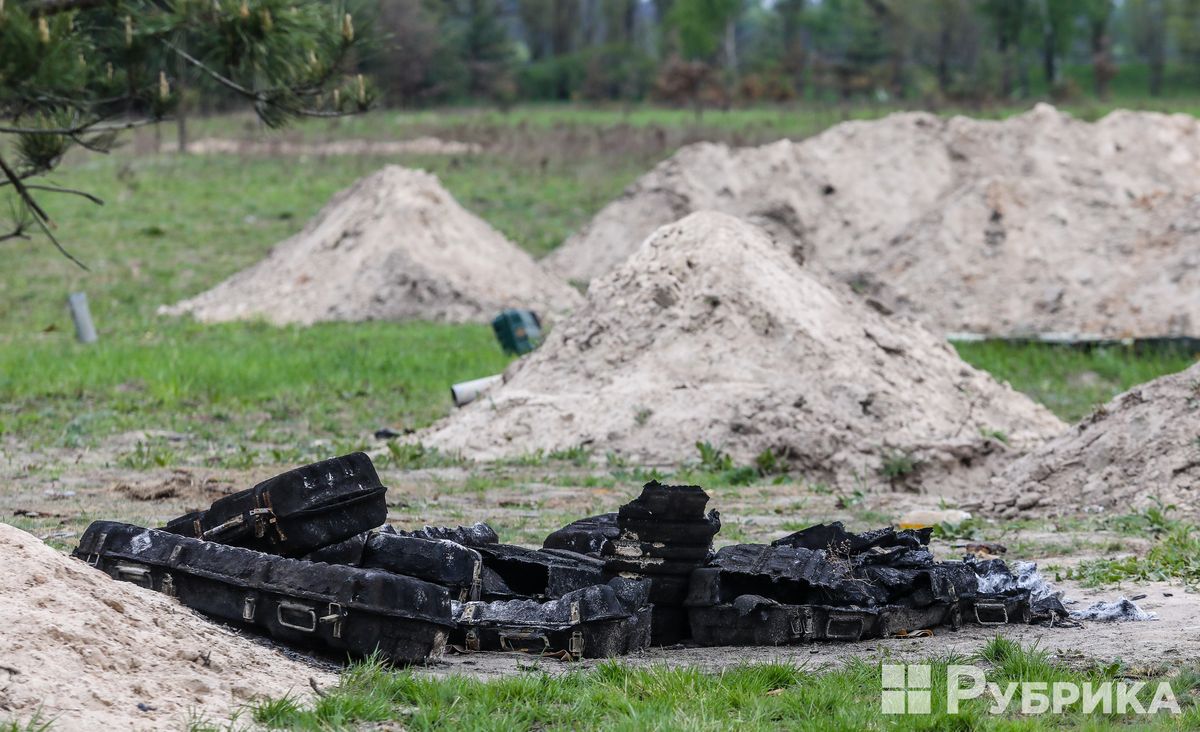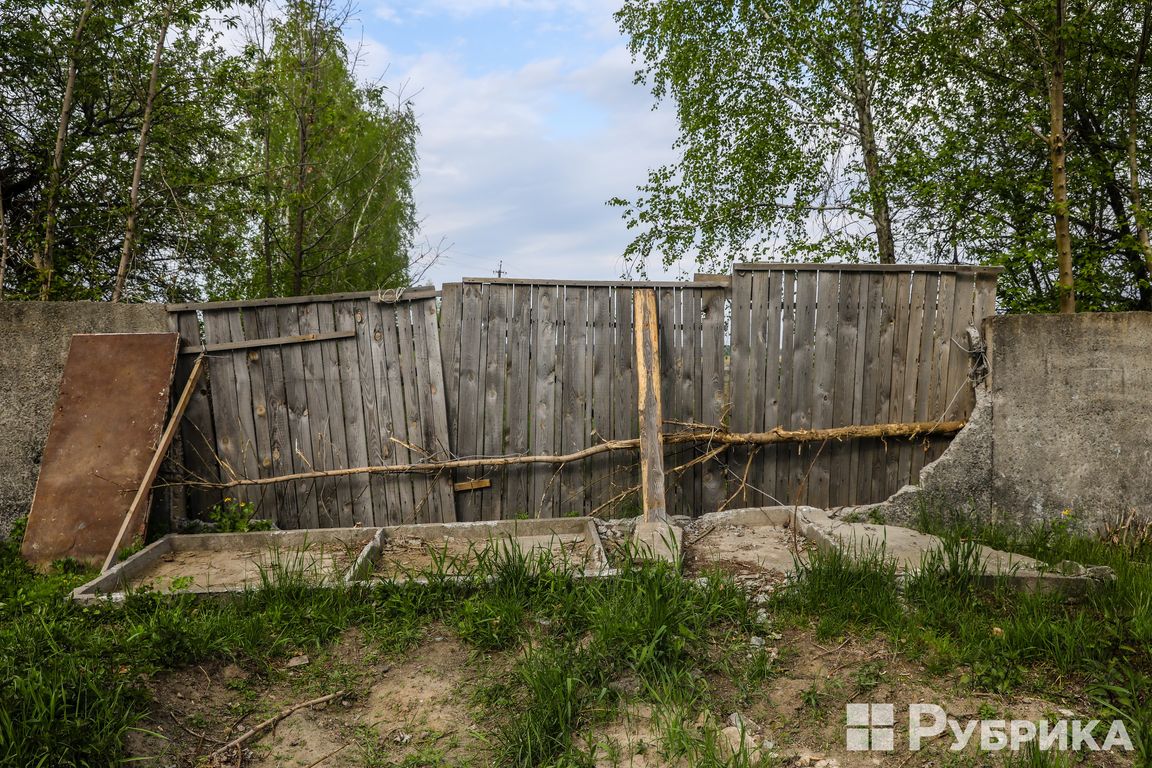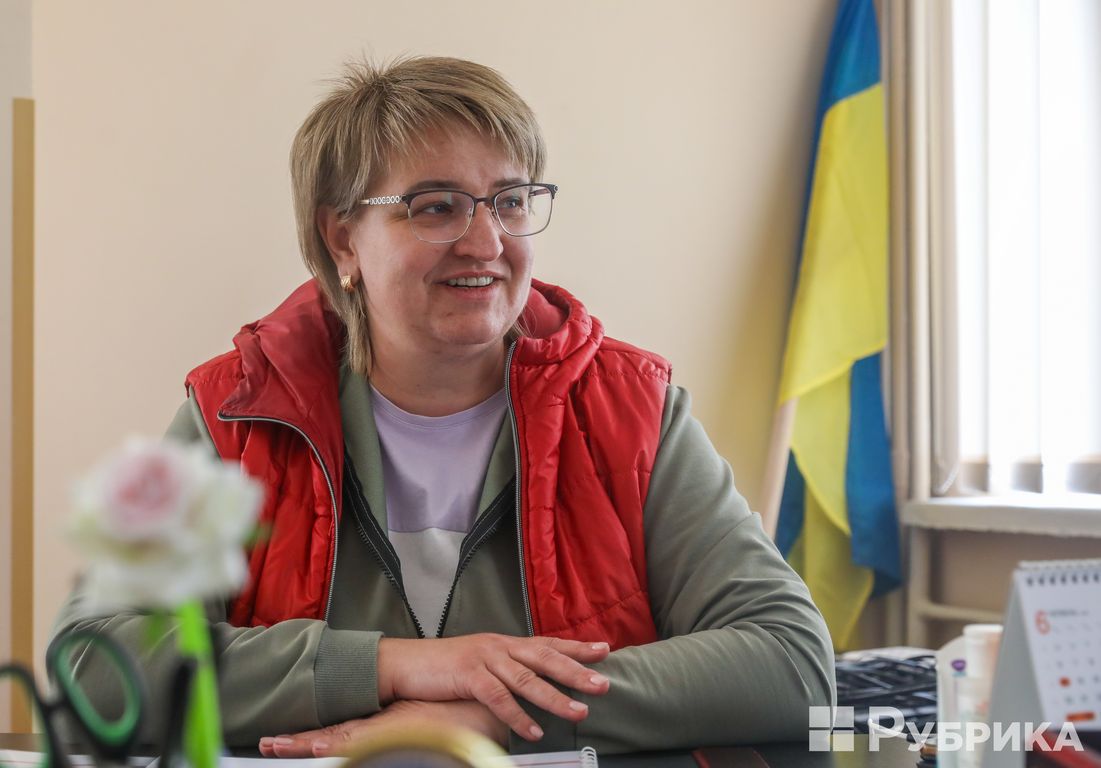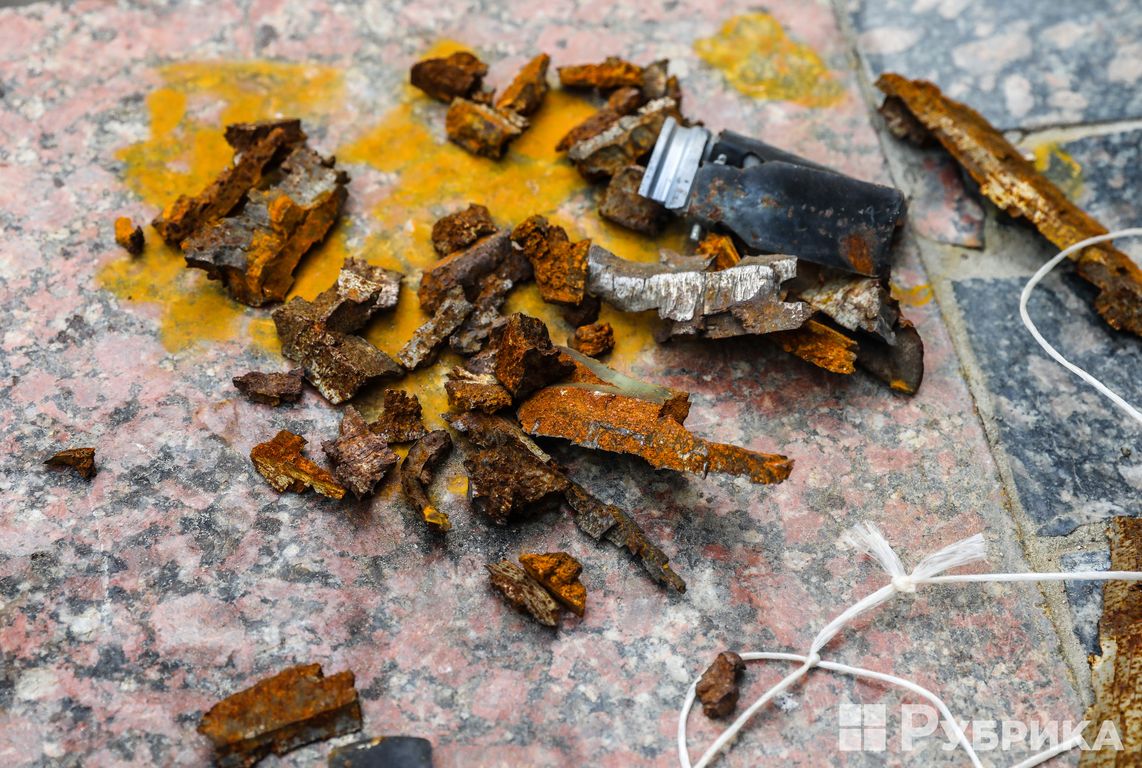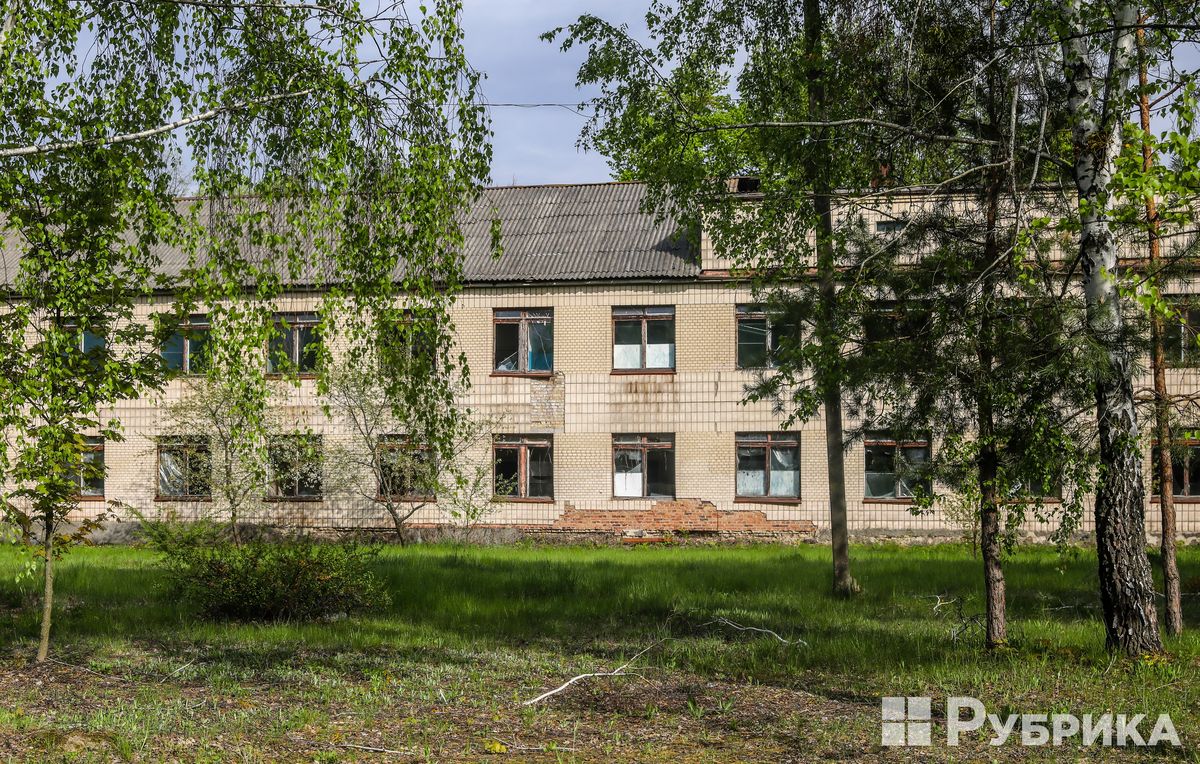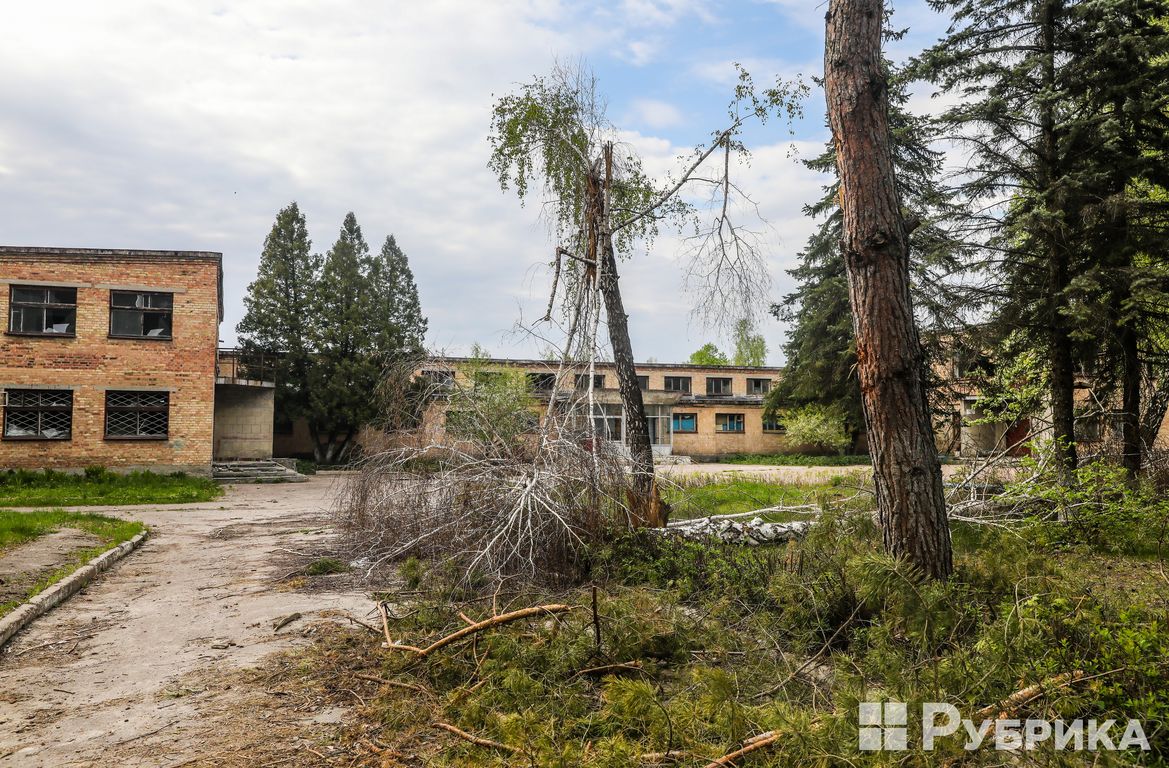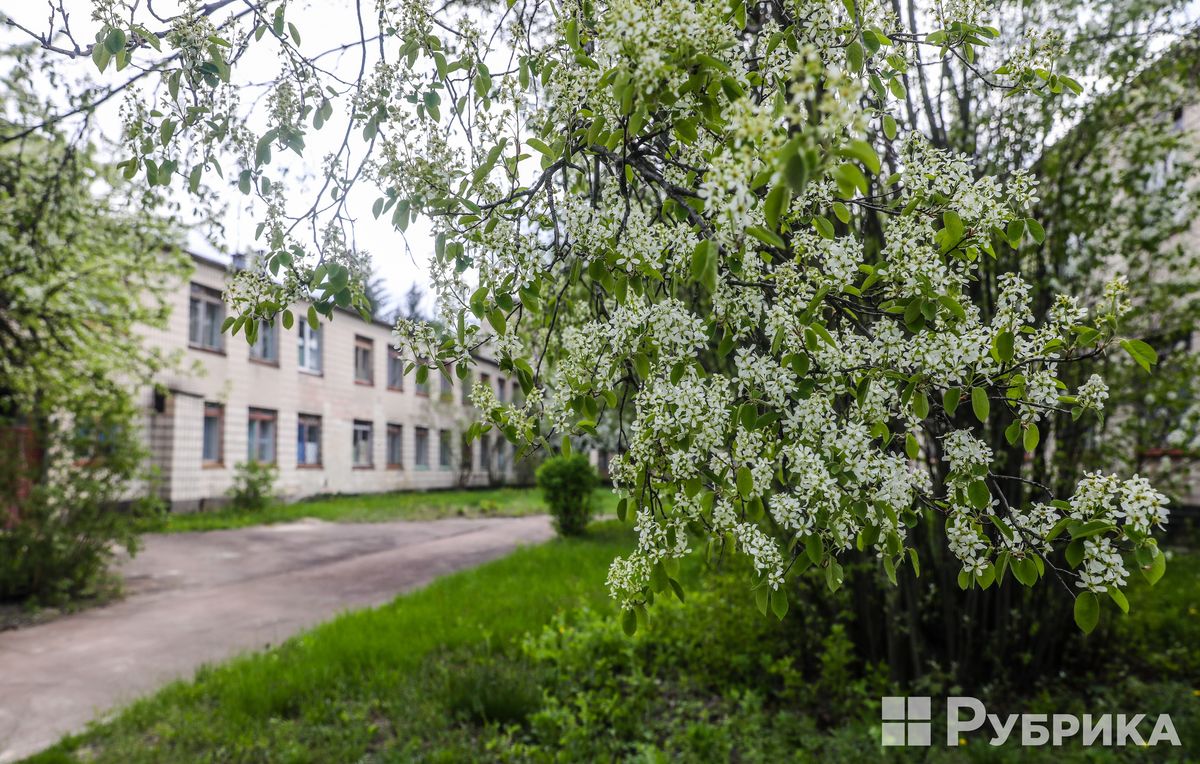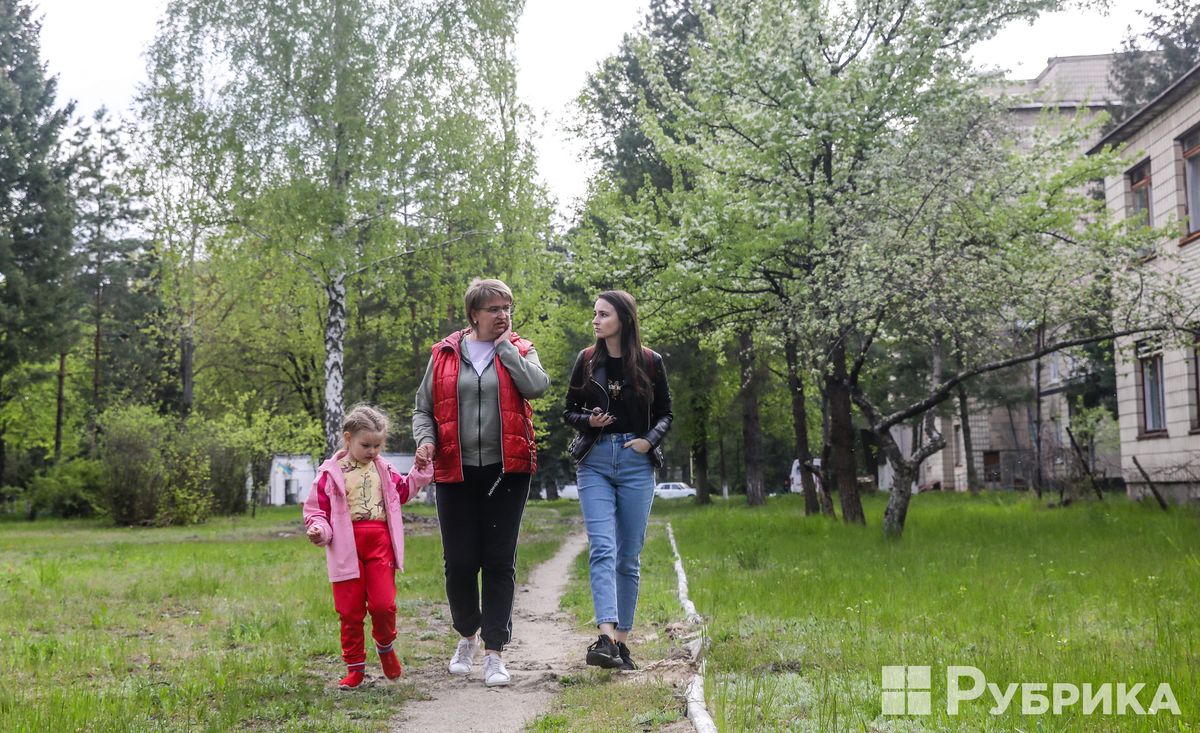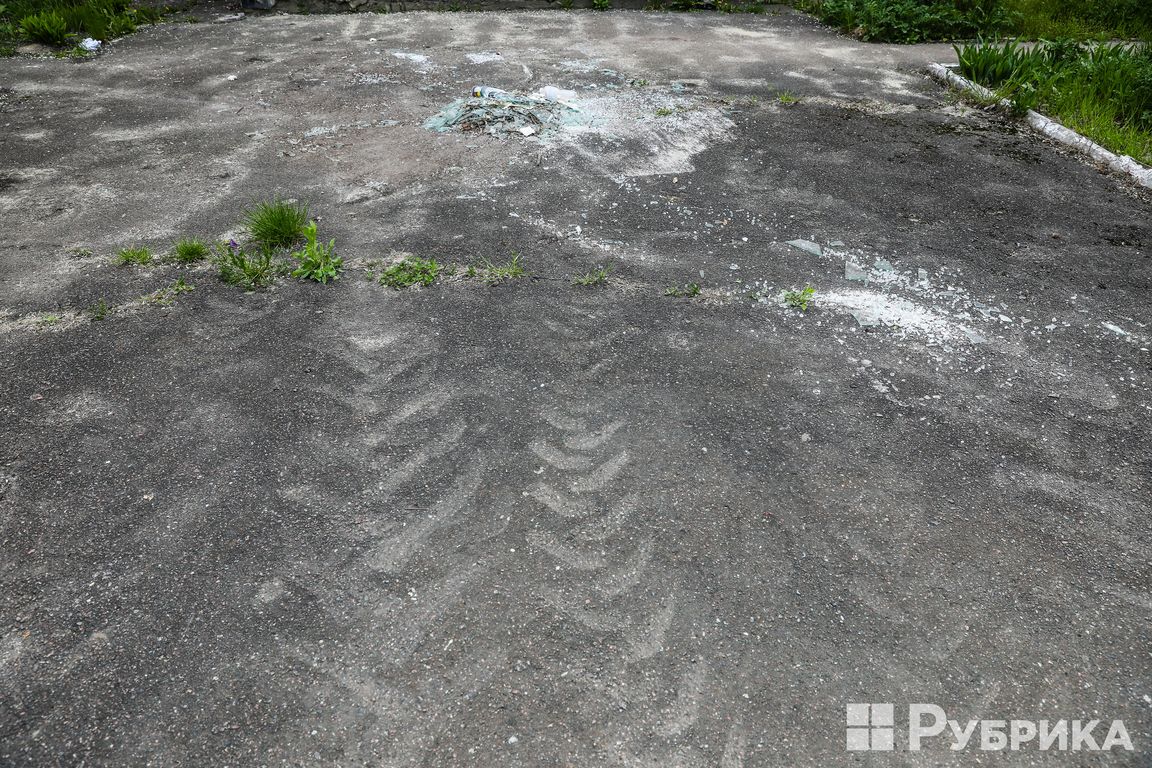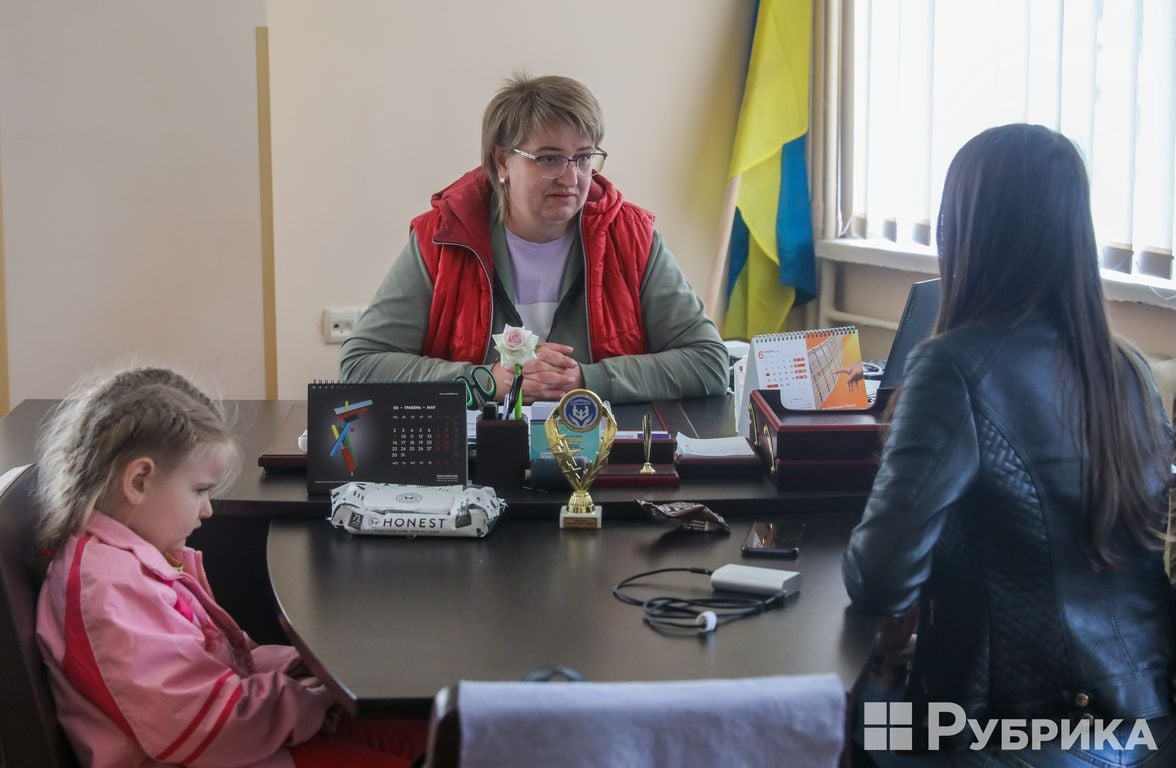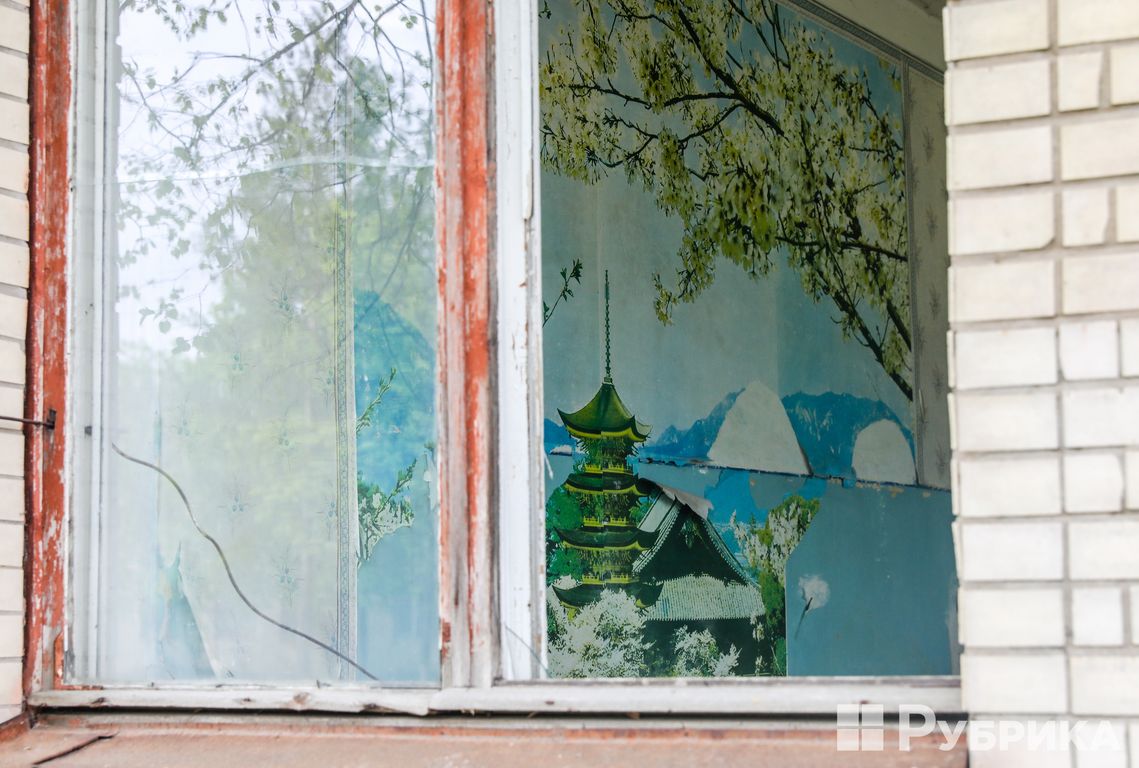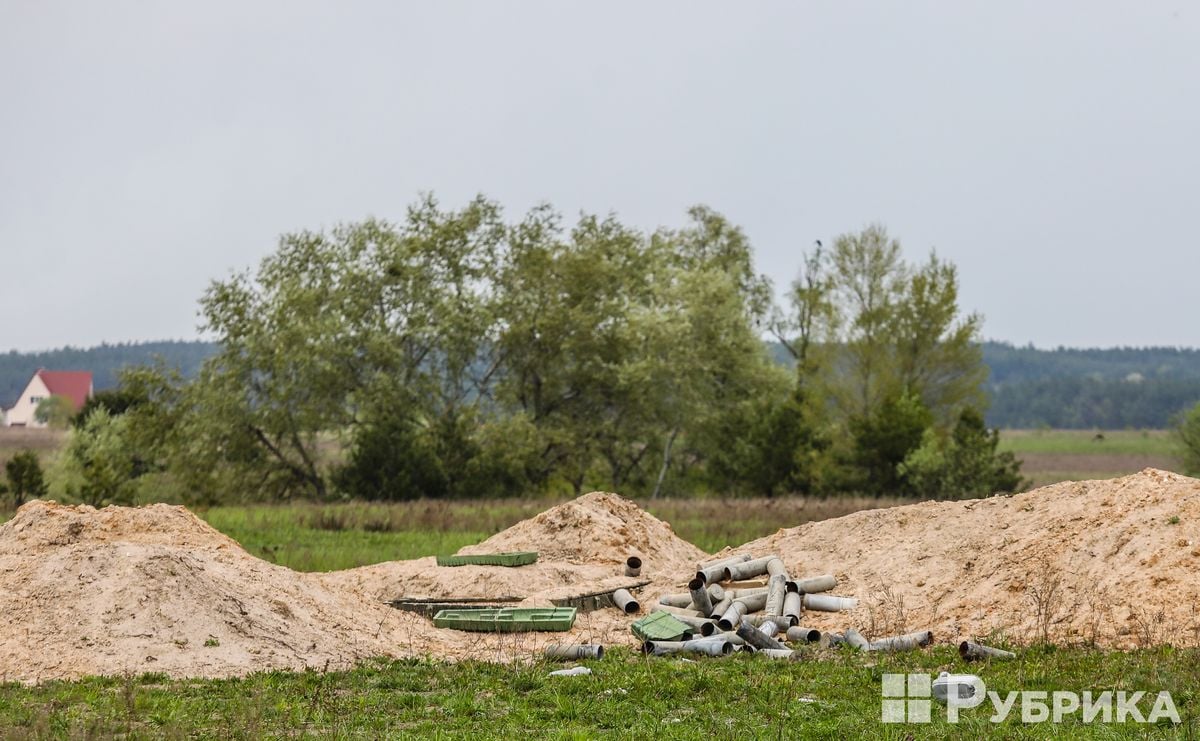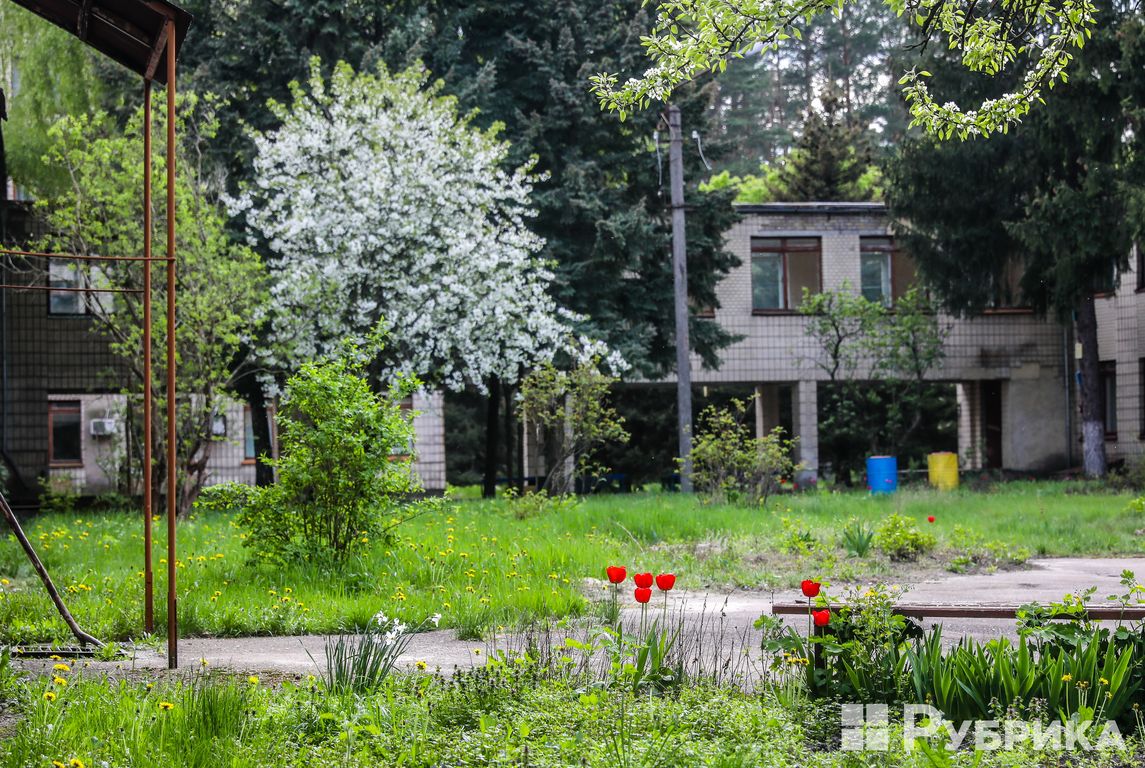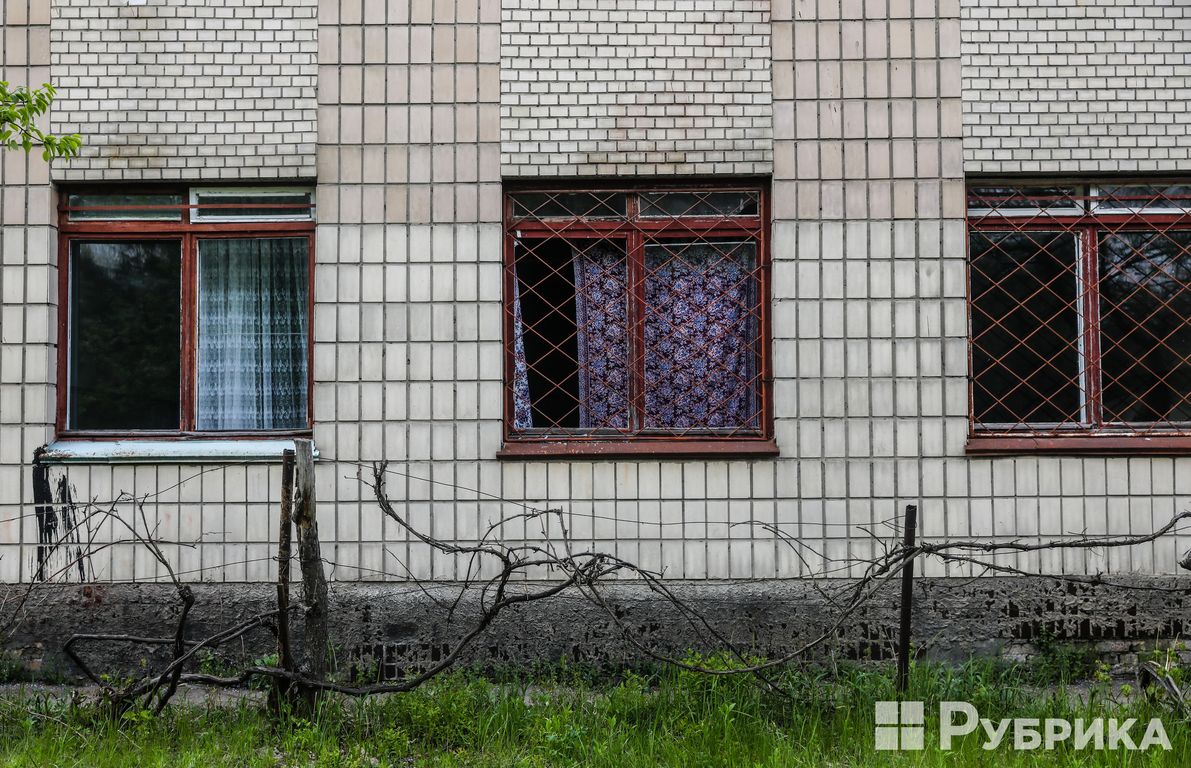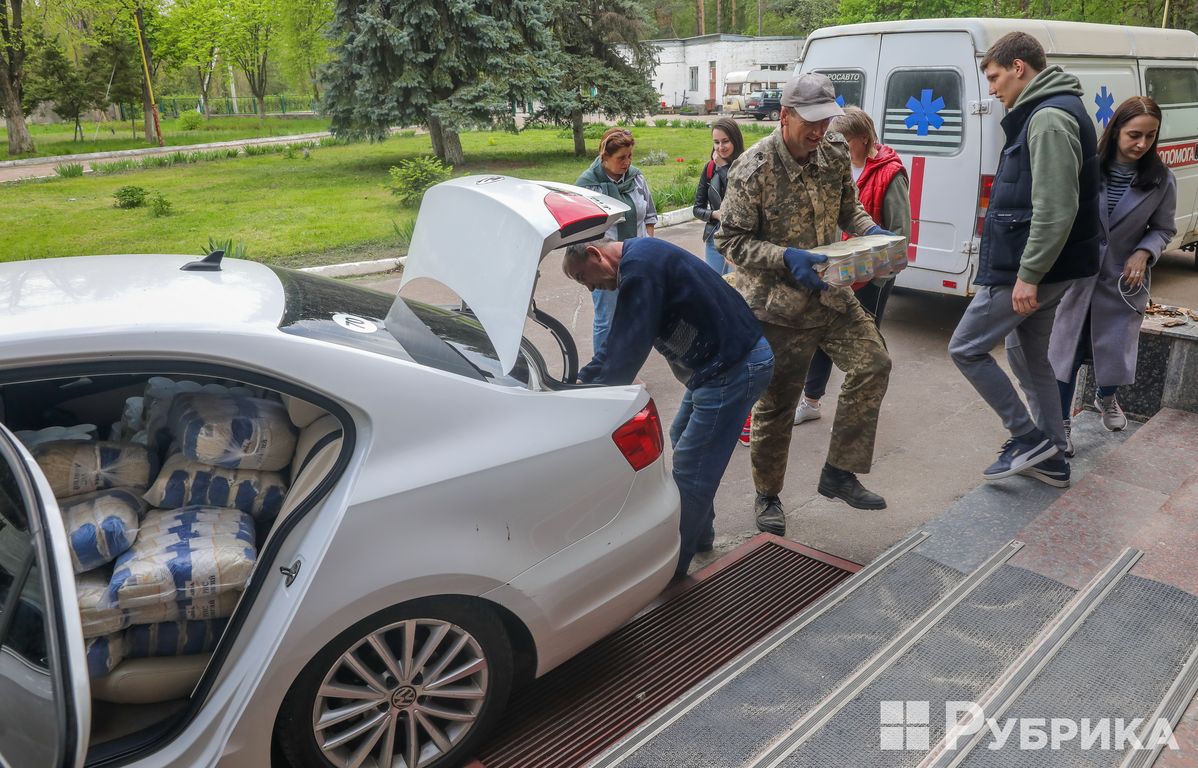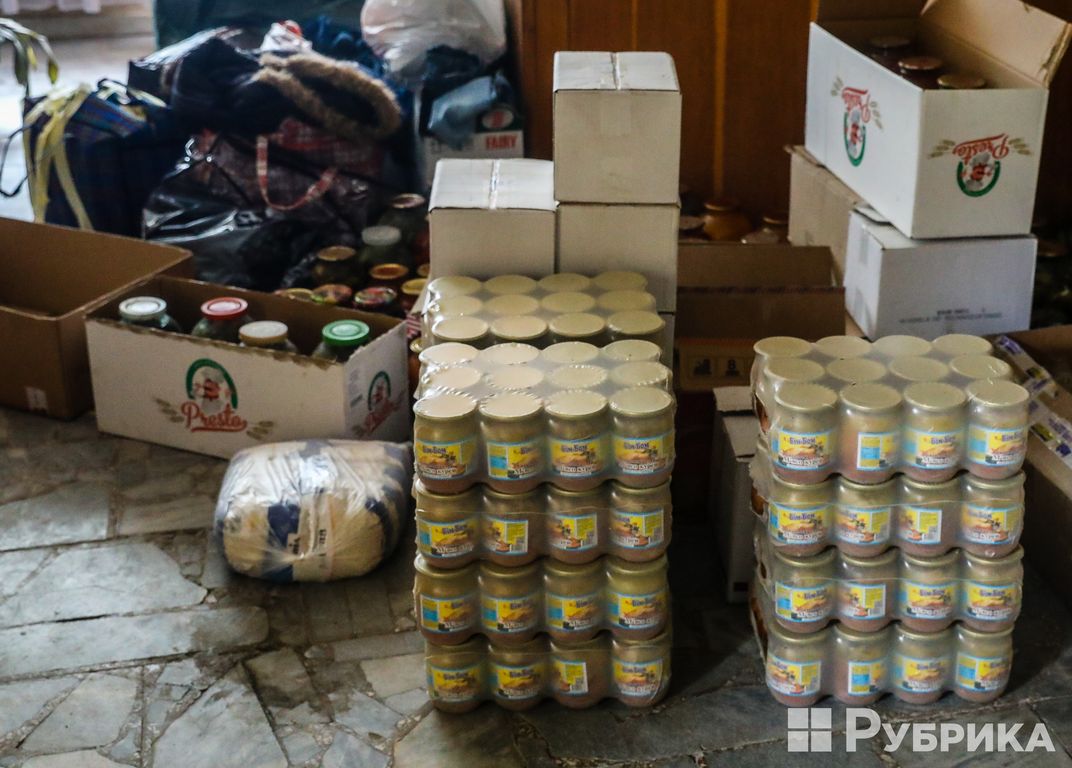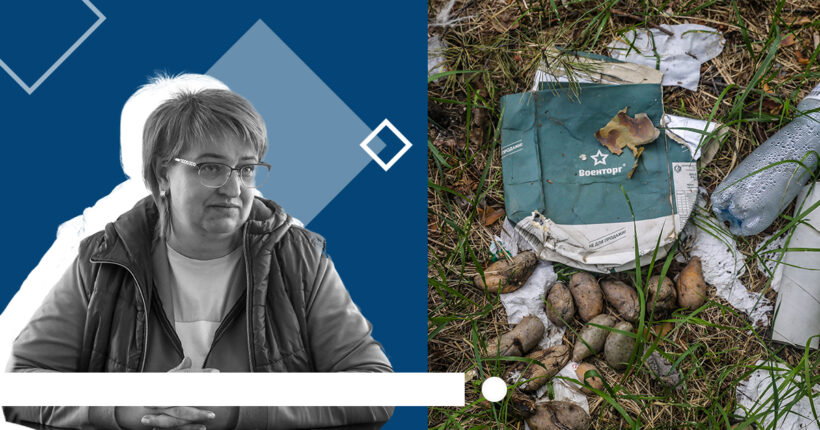
Kyiv Regional Psychoneurological Hospital is a bit away from residential areas. There's a forest around it with a route on both sides. And, the guard says, the territory has "traces of the life of russian orcs." Patients were evacuated, and the hospital itself was forced to become the lair of the occupiers. Now it is looted and shelled. Meanwhile, patients want to return to the walls they used to call home.
Hennadii Butkevych's BGV Charity Fund couldn't sit idle after learning about the hospital in Vorzel. Volunteers of the foundation donate products to patients because the hospital cannot purchase everything it needs because of the occupation. Computers are destroyed, the control system is blocked, and money goes to essentials.
"And here, behind the concrete fence…"
"The nutrition unit survived; russians only took one ladle. We found it in the field. And here, behind the concrete fence, they dug 30 trenches for tanks. They dug in there and lived there. After that, the sappers took away mines and shells; their vehicles were heavy with them."
Tetiana Ponomarenko has been heading the hospital for two years. She's guiding us through an area of almost 8 hectares and the "russian world" brought by the aggressors. It showed itself in a stolen ultrasound machine, shot doors, a destroyed heating system, damaged wards, dismantled computers, and the conditions no longer suitable for patients.
"It's fine; we will restore everything. We will soon have everything working. I've already started bringing food, and I hope that we will pick up patients soon. We need to wait for warm weather. The russians shot the batteries; the heating system is broken. It will take another two months to fix it. But the patients already want to go home," Tetiana confidently says.
Now the hospital has been cleaned. Although during our visit, some of the staff continue to pick up small fragments of shells near the grassy walls. Workers come here every other day to clean up. Everyone is preparing for the return of patients. The hospital is gradually filled with the routine of ordinary life. But first, we'll tell the story of how it disappeared.
"Our basement is cold and sad."
There were 267 patients in the hospital at noon on February 23. However, after a letter from the health department saying they banned the medical institution from scheduled hospitalizations and advising not to accept anyone for treatment, doctors began to inform patients' relatives about the danger. They began to take away patients. Sixty-two patients in the hospital met the February 24; twelve of the patients were children. Only on February 26 were they evacuated.
These people were the first to experience the war. The Hostomel airport shelled long and hard by russians is a few kilometers from the institution.
"Anyone who could quickly came on February 23 and took away relatives, and some people were afraid. You know, people think it is a hospital; everyone is safe here. Nobody will touch the hospital. But, it turned out that we are at war with the country that does hurt the sick.
We heard bombs being dropped on the airfield. Everything was so shaky that I ran out of the table into the corridor. The secretary fell under her desk and said: 'Where should I run?' Escape to the bomb shelter. We taught everyone, what to do," the doctor recalls.
Patients were prepared for a possible full-scale war. So with the first explosions, they quickly went out into the corridor with no windows while the staff gathered children and the most severe patients. Then everyone went down to the basement.
"Our basement is cold and sad. We put benches there and brought water, but everything froze in a day. If we had stayed here, no one would have pulled us out. Nobody could've got here.
We would've been cold and hungry if we had stayed and been under siege. We had many children, many girls. If they were hurt, what would we do?
If it was warm and there was something to eat, we could sit there hoping nobody would hurt us. And so we were cold and hungry because the electricity disappeared almost immediately, and the stoves were electric. For three days, these children were scared. Everything was exploding around them, and they were crying," says Tetiana, interrupting herself.
On the evening of February 24, one of the locals, Oleksandr, the owner of a shop near the medical facility, came to the hospital head. He gave Tetiana the keys to his store and said they could take everything they needed there because he didn't know where he would be the next day. At the store, the medical staff took some cookies for the children; they didn't touch the rest.
On the morning of February 25, while the electricity was working, the cooks were still preparing borshch. Then there was no electricity or water, so they had cold buckwheat with canned meat stew for dinner. The doctor says they were apprehensive about this because patients take neuroleptics, so they shouldn't eat little or infrequently.
Tetiana appealed to the district councils to bring a generator and a field kitchen. However, no one has responded to any of these letters.
In the evening, the hospital management decides to evacuate. Tetiana is negotiating with the Borodianka Psychoneurological Care Home, where she worked in 2008. The woman says there is a warm basement, and this fact alone is enough.
"Don't worry…"
"We took our two ambulances, mattresses, pillows, and bedding, put warm clothes on patients, and got ready for the journey."
I asked about the patients themselves and their reactions. Earlier, Ms. Tetiana explained that people with mental illnesses are usually attached to the medical staff who work with them and hospitals, where they spend a lot of time or even live. However, the doctor says it helped because patients followed all the instructions of nurses and doctors quickly and without hesitation. Of course, there were questions. But they also found answers quickly.
"When we went down to the basement, the patients tied a pillow to their belts, threw blankets over their shoulders, and went to hide. When we evacuated, they showed us how good they were!
Patients were divided into two departments and one pediatric department. Some patients came from one side; others went from the other. Children came out between them, and some other patients followed them to keep the children inside the row to protect them. The patients did it themselves! After that, I'm incredibly proud of them," said the head of the hospital.
The hospital staff transported all 62 patients in two stages. They made the third trip to take mattresses and bedding. After visiting her father, Tetiana was supposed to follow, but she didn't make it. The russians were ahead.
The invaders also reached Borodianka, so the patients fleeing the occupation still got under it.
"The russian military men passed through that care home, came in, and counted the patients. There were 12 of my staff there, they climbed a tower somewhere and called me: 'Don't worry, we're fine, we have something to eat, we are warm and not hurt.'
Then a week later, the mobile service disappeared. The hospital personnel prayed every day for them to survive there. But they were not hurt. They were then evacuated with the help of the Social Protection Department of the Zhytomyr Psychiatric Hospital and to care homes in the Zhytomyr region. They are still there.
Four patients died. Not from bullets. They were in serious condition before the invasion and bedridden.
There were also 12 children. We provided them with humanitarian aid and everything they needed; we took them to a boarding school in the Zhytomyr region. But these are children; they want to go home. They've already missed us during the month. So the doctors and I decided to raise some money ourselves, rented them a car, and took each child home. So we took nine children to our relatives. Their relatives took the other three away," says Tetiana.
"The EEG machine remained. They probably didn't know what to do with it."
While we walk through the territory, Nina, Tetiana's youngest daughter, doesn't leave her side. The girl behaves very quietly until she finds ants that quickly crawl on her. Mom deftly calms Nina and moves ants away.
"And what do you do with your mother at work? Do you work with her?" I ask the child, and the question instantly puts a smile on her face.
"I'm helping my mother," the girl says shyly.
"Honey, tell me, what have you always done here with us?" says Tetiana.
"Before the war, Mom?"
Everyone has known about the war in this place for a long time. This hospital is the only department in the entire Kyiv region that helps combat veterans cope with post-traumatic stress disorder, the consequences of closed trauma brain injuries, insomnia, and other neurological and mental effects of hostilities.
Tetiana says that the department mentioned above is always overcrowded, with 40 patients before the escalation. Some were discharged, and some asked for help. They want to restore especially this work in the hospital. After all, the greater the scale of the war, the more injuries it inflicts on people.
The head of the hospital says that when Vorzel was finally liberated, they found out the russians had mined many things. Every day, she came to the hospital gates for two weeks to hear that the sappers were demining the area and drove back. When she finally got inside, she saw a complete mess. In a vast hospital, the russian military lived the entire occupation for a month.
"They lived in our garages, bringing all the soft stock there: the remaining mattresses, white bedding, and dishes. There they slept, ate, and cooked. Their rations are scattered everywhere.
They broke all our vehicles. Nine cars. It is the only ambulance that my husband pulled and started. The exact vehicle with punctured wheels and the torn steering wheel was stolen in de-occupation by one of ours.
An explosive wave smashed the windows. One hundred thirty-four windows were damaged. Some were glazed with glass, which we had in stock, and covered some with film. They burned my awards and ten volumes of the medical encyclopedia in the garages. I had a photo on the table in my office, so the occupiers shot it. My family photo…
I come here, and I don't know what to do. Where to put locks? What to put them into? Everything was torn out and broken… They just walked and shot at the doors. The senior nurses had metal doors in their offices because we stored drugs in safes. The russians shot at them. They stole drugs, painkillers, blood pressure medications, and the new ultrasound machine. Why do they need it? They also took a portable ECG machine. However, the EEG machine remained; they probably didn't know what to do with it," the doctor says.
"Now, we need absolutely everything."
Tetiana answers like that to the charity foundation representative who asks about the institution's needs. Anna brought a car of products from the BGV Charity Fund, a Ukrainian charity whose team began looking for partners abroad at the start of the war to join forces and deliver humanitarian aid to the affected towns and villages.
The BGV Charity Fund brought humanitarian aid together with the Ukrainian National Women's League of America (UNWLA) from Ohio. When I talked to their representative, Halyna Yarema, she said she learned about a full-scale attack from her son, who ran into the room shouting, "Mom, they are bombing Kyiv!"
"We pass on aid through people we know personally. It can be our relatives, friends, or acquaintances whom our organization fully trusts. It is important for us that the help responds to real needs. Therefore, before allocating funding or handing over goods, we consult with our Ukrainian partners. People mainly order special clothing, footwear, tourniquets, first aid kits, night vision devices, tactical gloves, goggles, knee pads, etc. I'm happy that our cooperation with the BGV Charity Gund helped the hospital's wards in Vorzel, who suffered so much from the war," said Halyna.
The BGV Charity Fund and the UNWLA brought almost 500 kilograms of canned meat stew and grains to the psychoneurological hospital. On the day of our visit, the institution was still waiting for five tons of potatoes from volunteers from Bila Tserkva and packing received products from caring village residents of Babyntsi.
But the institution's needs, Tetiana says, are still many. Since the occupiers shot every monitor in every office and dismantled the computer power supplies, the electronic hospital management system was blocked; as a result, they couldn't purchase any food, equipment, building materials, or medicines through the Prozorro program, as required by law. They hope for philanthropists.
Finally, we start talking about the losses again. The woman says that all the wards and corridors were filled with foam from fire extinguishers; the occupiers turned over furniture, took out most of the chairs, and fired at the doors. The electricity and water supply system was shut down. There are traces of armored personnel carriers on the asphalt, security guards are constantly finding new fragments of shells, and there is no bed linen left.
Despite this, the hospital is preparing to restore and return its patients soon. I ask if at least one room is left that is not damaged.
"No. The food unit survived, but the ladle was stolen," Tetiana laughs.
And we want her to finally smile with joy because of the chance to work again.




